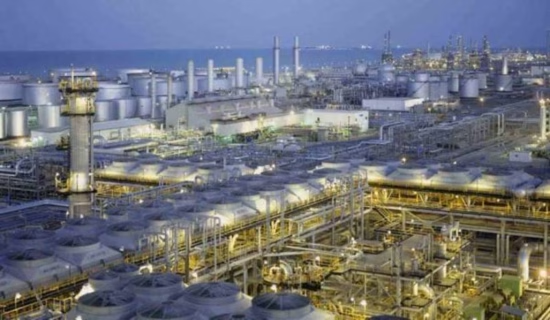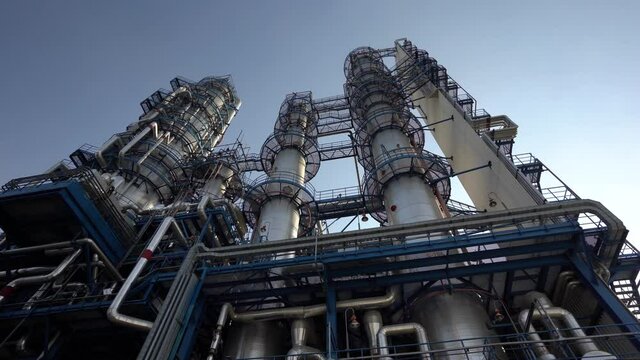Nigeria’s $10 billion Train-7 gas project is facing a major setback as protesting workers have downed their tools. The aggrieved workers are demanding issuance of their tax receipts and tax identification number (TIN) codes. The workers also alleged the illegal deductions from their monthly pay to the tune of N150,000. They note this was done under the guise of taxation. The protests which started earlier last week seemed to be gaining pace as workers vowed yesterday not to vacate the premises. Moreover, they have noted that the picketing will continue until their issues are resolved.
The workers picketed the administrative building of the SCD JV (Saipem, Chiyoda and Daewoo Joint Venture) in Bonny, Rivers State. The protesting workers mainly includes fitters, welders and junior staff of the company. The workers lamented that despite their efforts in taking the US$10 billion Train-7 project to its present 90% completion, the company still look down on their services. The protest, led by workers under Daewoo Contractors, reportedly began with fitters and welders before spreading to junior staff. Nigeria’s LNG industry has gradually taken shape as it has caught the eye of multinational energy companies such as TotalEnergies who aim to invest in a $750 million LNG project in the country.
The Significance of the Train-7 Gas Project Once Completed
Despite the setback, the significance of the Train-7 gas project once completed remains undisputed in Nigeria’s energy sector. Nigeria’s NLNG Train-7 will significantly influence the economy by increasing the country’s Liquefied Natural Gas (LNG) production capacity. It will boost it from 35% to 30 million tons yearly, attracting Foreign Direct Investment (FDI). Moreover, it will enlarge the country’s tax base and offer more revenue that could be channeled elsewhere. The project also fosters immense growth in standards of living by creating thousands of jobs.

Furthermore, it builds local engineering and fabrication capacity, and deepens Nigeria’s position as a global player in LNG. Nigeria’s Federal Government has also shown its accolades to the project, marking it a commendable move in the African energy sector. The recent setback severs the project’s progress as The President National Association of Plants Operators (NAPO), Mr. Harold Benstowe, has called for the anti-graft agencies to wade in to the matter.
The Nigeria Liquefied Natural Gas Limited (NLNG) has reported a significant milestone in the ongoing construction of the $10 billion Train-7 gas project on Bonny Island, Rivers State. The project, which is currently at a 52% completion rate, is providing employment opportunities for approximately 8,300 Nigerians. This update was shared during a high-level engagement between NLNG, led by Managing Director Dr. Philip Mshelbila, and the Executive Secretary of the Nigerian Content Development and Monitoring Board (NCDMB), Simbi Wabote, held at the company’s operational base in Bonny Island.
As part of a three-day Nigerian content stakeholders’ retreat, NLNG and NCDMB signed an agreement to introduce an oil and gas e-marketplace, facilitating the rollout of tender opportunities through an electronic platform, thus aligning with the Nigerian Oil and Gas Industry Content Development (NOGICD) Act. This e-marketplace aims to enhance transparency and efficiency in the tender process.
Challenges Facing The Oil And Gas Sector In Nigeria.
However, despite these developments, challenges persist in the $10 billion Train-7 gas project. NLNG faces difficulties in securing an adequate supply of feed gas for its operations, leading to production falling below 50% of the total installed capacity across its six plants. These issues are attributed to recurrent vandalism of supply pipelines, facility failures, and declining production from aging wells.
Also read Nigeria to build its first floating liquefied natural gas facility
To address these challenges, NLNG is exploring various solutions. They include partnering with security agencies to combat pipeline vandalism. Additionally, NLNG will be collaborating with joint venture (JV) partners to increase gas production. Furthermore, the NLNG board of directors has approved the procurement of gas from international and indigenous gas producers. This will significantly enhance the performance of Trains 1-6.
Simultaneously, deep-water gas projects are critical for supplying gas to the $10 billion Train-7 gas project. This is significant because future expansions have not yet commenced. While the Train-7 plant’s construction is progressing, the absence of gas supply poses a potential threat to its liquefaction operations. NLNG is seeking support from NCDMB and other stakeholders to advance these deep-water gas projects to ensure the sustainability of Trains 1-6 and provide gas for Train 7 and future expansion plans. The project developments underscore the opportunities facing Nigeria’s oil and gas sector. It seeks to adapt to changing global dynamics and unlock its remaining energy potential for economic growth and diversification.

Leave a Reply